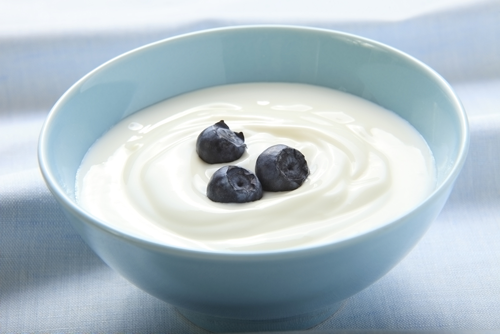Audrey Anne Sukacz said she started enriching her diet with probiotics—foods that contain beneficial bacteria—in the hope that it would help curb her unpleasant bouts with irritable bowel syndrome. The change in diet, including foods like beet kvass, kefir, sauerkraut, and kombucha, did help settle her stomach. But Sukacz, 39, of Baltimore, Maryland, also experienced an unexpected side effect.
“I noticed an elevated mood,” she says, “a general lift.”
While such research is still in its infancy, studies support Sukacz’s anecdotal experience: Having a gut full of beneficial bacteria seems to promote the production of brain chemicals that ease feelings of anxiety and depression, while an abundance of harmful bacteria may actually trigger these symptoms.
It’s suspected that bacteria are able to send messages to the brain through the vagus nerve, which links the gut to the mind.
Dr. Kirsten Tillisch, a gastroenterologist at the University of California, Los Angeles, says more research needs to be done to understand exactly how the connection works, but she has no doubt the interaction between brain and gut is essential in forming our sense of self.
“Our Western approach to medicine really has taught people to think of our organs like parts in a car, instead of intrinsic parts of ourselves,” she says. “We sometimes forget that how we choose to live and what we put in our bodies changes who we are.”
A recent study led by Tillisch suggested that the kind of bacteria that inhabits our gut affects how our brains handle unpleasant situations. Neurological scans were done on subjects who were shown images of angry faces. Those who had consumed probiotic yogurt twice a day for a month showed a milder response in the brain than those who hadn’t eaten the yogurt.
The finding supports the results of earlier studies, including one that found mice became more bold or more fearful depending on the balance of good and bad bacteria in their guts. An earlier, small study on humans found that subjects’ anxiety symptoms decreased after taking probiotics.
But Tillisch doesn’t advocate swapping your antidepressants for yogurt just yet.
“If we find the right probiotic for the right person, we may be able to intervene in a positive way,” she says. “Just as our current antidepressants aren’t a magic bullet, neither will be the probiotics. The goal is to make as many positive changes as possible to keep people healthy.”
Feed Your Bacteria
In addition to consuming more probiotics, including fermented foods like yogurt, miso, and tempeh, you can promote better gut health by consuming “prebiotics”—carbohydrates that feed the beneficial bacteria in your body. Try these foods suggested by Cleveland Clinic dietitian Gail A. Cresci:
- Slightly green or under-ripe bananas
- Durum pasta or egg noodles
- Sourdough bread
- Boiled rice (especially arborio, S. Andrea, originario)
- Onions, leeks, and garlic (raw or cooked)
- Jerusalem artichokes
- Raw chicory root
- Cooked oats
- Blueberries
- Cooked dried beans (pinto, black)
“Does Gut Bacteria Affect Your Mood?” was originally published on Spirituality & Health. To view the original article, click here.
Click here to find out about Rose’s thoughts on wellbeing and health




2 Comments
Sharon
what is special about those types of rice?
Rewire Me Staff
Hi Sharon,
We got in touch with the writer to (hopefully) get an explanation. Stay tuned.
Thanks!